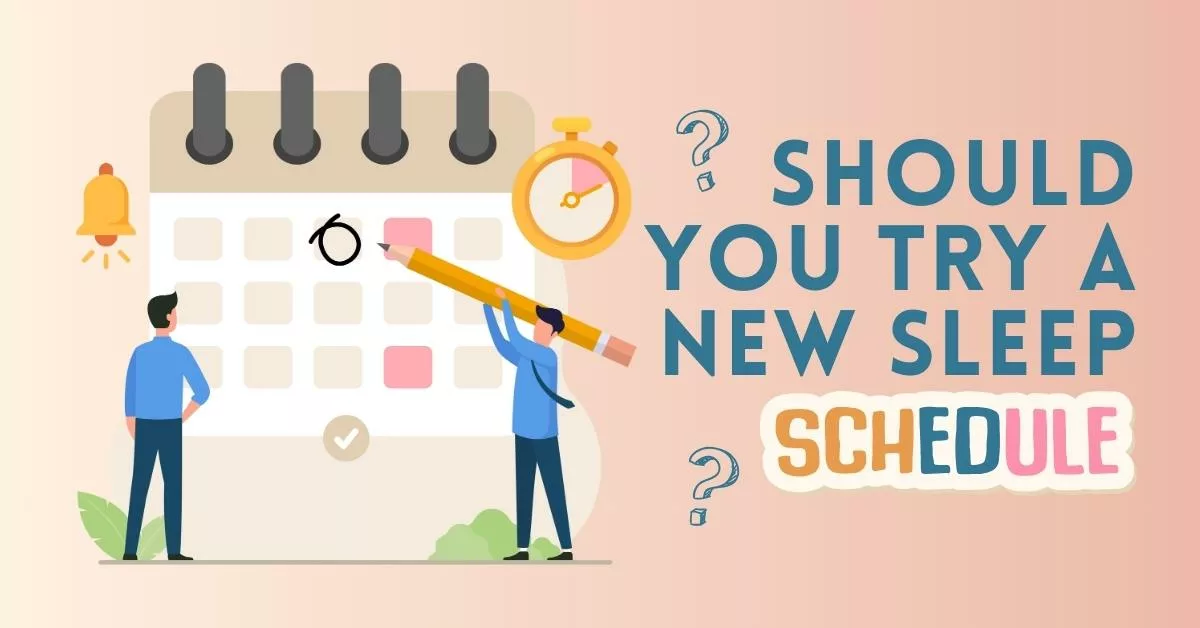Sleep
A New Sleep Schedule for the New Year?
It’s a brand new year. Like most of us, you probably have a few resolutions to tackle in the months ahead. Maybe you want to get healthy, travel more, worry less, or have more time and energy to do the things you enjoy. Whatever your resolution, sleep likely plays a major role in your success, whether you realize it or not.
Your sleep schedule impacts your life. And if you want to make changes to your life, you might be thinking about making changes to your sleep.
What is a sleep schedule?
Sleep schedules are comprised of the duration and number of times we regularly sleep per night. Three types of sleep schedules exist: monophasic, biphasic, and polyphasic sleep.
Popularity of biphasic and polyphasic sleep schedules rose in the past few years. On almost any social media platform these days, you’re bound to run into an article promoting the benefits of sleep schedules such as the “uber man”.
Most of us are monophasic sleepers
Monophasic cycles consist of one long sleep period throughout the day (usually at night). This period should last somewhere between 7-9 hours. For the majority of the population, monophasic sleep is the norm. Our hectic schedules – centered around the normal 9-5 work day – demand it. But most of us sleep less than the recommended 7-9 hours, meaning we are not using the monophasic cycle to its greatest potential.
Research suggests more efficient ways of sleeping. So, if you don’t get the recommended daily amount on a monophasic cycle, a new sleep schedule might seem attractive.
Biphasic & polyphasic sleep
If you’re looking to change things up from your monophasic sleep schedule, there are two options. You can go old school with a biphasic schedule, or head on into the new age with one of the many polyphasic schedules out there. Whatever you choose, do your research first!
Biphasic Sleep
Also known as segmented sleep, this sleep cycle is comprised of two core sleeps (around 4 hours each) with a short wake period of about 2 hours in between.
Many scientists argue that the biphasic sleep cycle is humans’ natural way of sleeping, and for good reason. Multiple works from medieval times and onwards mention “first” and “second” sleeps, with a few hours of waking in between.
This makes sense if you think about it. Before the invention of electricity, the sun largely dictated our schedules. Candles and oil for lamps were commodities most could not afford to use in excess. As a result, you slept when the sun went down and woke when it came back up.
There’s a great TedTalks by Jessa Gamble wherein she makes a compelling argument in favor of this sleep cycle. It’s a short video, and definitely worth watching if you’re at all interested in biphasic sleep.
Not what you’re looking for? Then read on because the most drastic sleep schedules come next.
Polyphasic Sleep
Polyphasic sleep involves 3 or more sleep periods taken during the day. These periods can consist of either core sleeps (longer sleep durations) combined with naps, or just multiple naps! That’s right, you can theoretically live a productive, healthy life sleeping in only very small increments. It may sound crazy, but some people swear by it.
That said, a polyphasic sleep cycle is the most difficult to achieve because it involves less sleep and shorter sleep periods. Polyphasic cycles aim to cut out ‘unnecessary’ sleep stages, focusing only on accumulating only ‘useful’ sleep stages.
Multiple versions of the polyphasic cycle exist. You can sleep only three times per day, or upwards of 6-8 times. Your choice. Learn more about about each type of polyphasic cycle here.
Which is right for you?
Our bodies are not the same, and our individual needs vary. Listen to your body and try to do what is best for you.
If you’re interested in trying out a new sleep schedule, we recommend checking in with your healthcare professional beforehand. They can better identify any potential risks and advise you on how best to proceed. Ultimately, our sleep is about our health. So whatever you do, make health your first priority and listen to your body!
Tried a biphasic or polyphasic sleep schedule, currently practicing one of these schedules, or thinking about it? Tell us about your experience in the comments!
